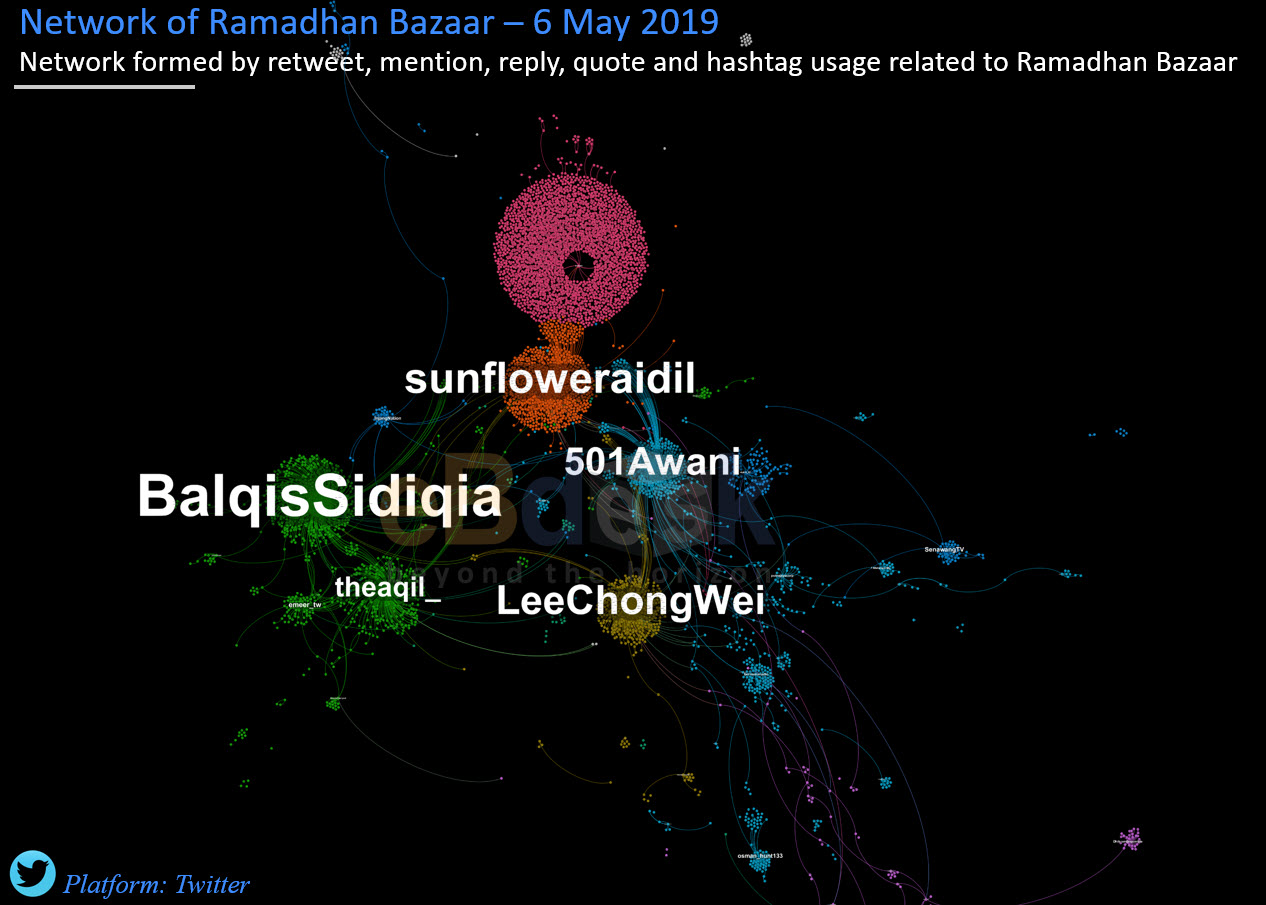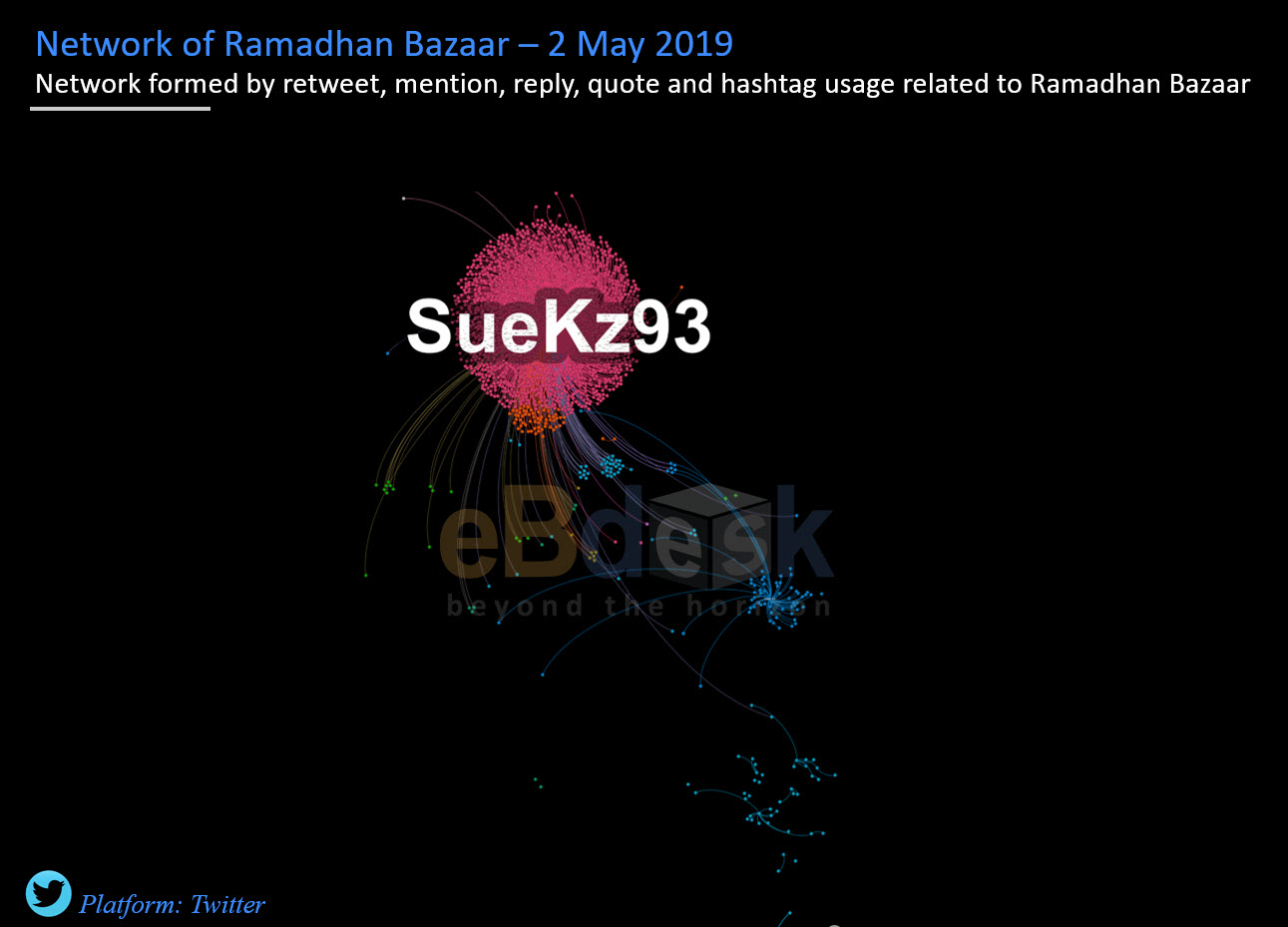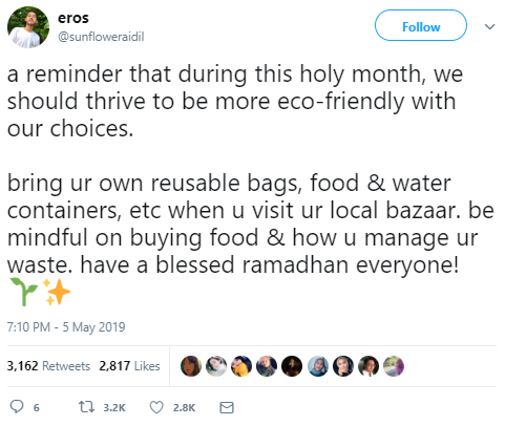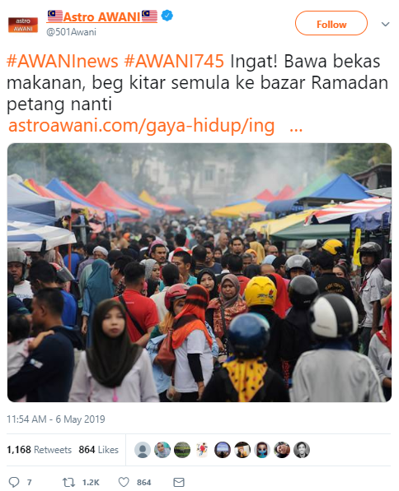Twitter users say ‘No’ to single-use plastic at Ramadhan bazaar

It is Ramadhan, the month where Muslims will fast to commemorate the first revelation of the Quran to Prophet Mohammad.
One of the unique ways the Muslims in Southeast Asian countries like Malaysia, Indonesia and Singapore celebrate the breaking of fast (Iftar) is to shop for food at the Ramadhan bazaar.

From the Twitter trend, Ramadhan bazaar became popular on the 2nd and 6th of May.

On May 2, the Twitter network of Ramadhan bazaar consist of one huge cluster with several others segregated tiny clusters.
The biggest one, being pink, had @SueKz93 as its influencer. The account tweeted advice for bazaar visitors on how to save in terms of plastic, food and money.

Her advice is to bring your own food containers and bags when purchasing food. Thus, no plastic bags will be wasted for packing your take-aways. Additionally, @SueKz93 also advised on using a metal straw over the single-use plastic straw.
The usage of plastic straws has been banned in the Federal Territories since the 1st of January this year. The full plastic straw ban for the whole nation is expected to be implemented in 2020.
Therefore, the practice of using a metal straw as an alternative will be a great preparation for the ban.
@SueKZ93 received positive feedback from other users with more than 11 thousand retweets and almost 6,000 shares.
One of the separate clusters tweeted about news where 5,000 traffic police officers will be placed in 250 bazaars throughout Malaysia. This means, on average, there will be 20 officers available at each Ramadhan bazaar.
On its peak day (May 6), the network expanded with more clusters spawned. Some were heavily linked to one another, and others were mildly connected.

The pink cluster remained active in opposing plastic wastage. Users in this group worried that the waste produced from the bazaar would be littered on the streets.
One of the users in the pink cluster shared an image of a street filled with junk. He hoped that the Ramadhan bazaar will not end up looking like the street in the picture.

The orange cluster is heavily connected to the pink cluster. This is because there were numerous users who reacted to the tweets from the influencers of the two clusters.
For the orange group, the primary influencer is @sunfloweraidil.

Like @SueKz93 in the pink cluster, @sunfloweraidil reminded the bazaar-goers to be eco-friendly.
He advised them to bring their own food and water containers along with reusable bags. Additionally, he asked bazaar-goers to be mindful to avoid food wastage.
Subsequently, he received a high amount of positive responses.
However, his feedback is lower than @SueKz93 despite having more followers. Maybe this is because he did not accompany any pictures along with his tweet to attract attention.
In addition, the blue cluster is also quite close to both pink and orange cluster. This group has news account Astro Awani as its influencer.
The account tweeted reminders to the people to be environmentally friendly and take care of Ramadhan bazaar safety and cleanliness.

Additionally, Awani also tweeted the news that stall owners will be fined if they were found to be using mobile phones while conducting their business.
Meanwhile, in the yellow cluster, national badminton player Lee Chong Wei wishes the Muslims a happy fasting month.
Overall, most of the Twitter users were concerned about the waste produced from the Ramadhan bazaar. This is a positive sign as Malaysia’s Twitter users are concerned about the environment. But does this reflect the attitude of real-life bazaar-goers?

